Toyota Grand Highlander (AS10) 2024 Owners Manual / Vehicle specifications / Specifications / Maintenance data (fuel, oil level,
etc.)
Toyota Grand Highlander (AS10): Maintenance data (fuel, oil level, etc.)
Dimensions and weight
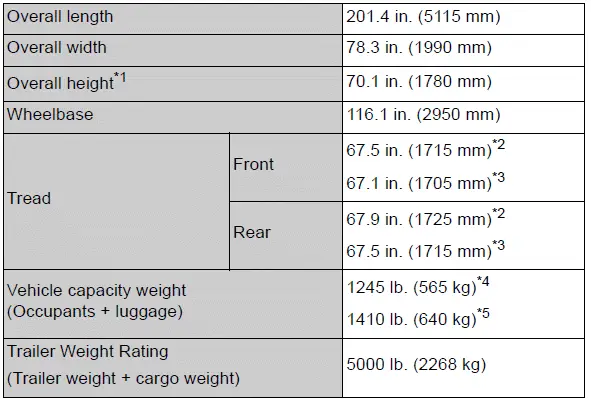
*1:Unladen vehicle
*2:Vehicles with 18-inch tires
*3:Vehicles with 20-inch tires
*4:For 7-passenger models
*5:For 8-passenger models
Seating capacity

Vehicle identification
■ Vehicle identification number
The vehicle identification number (VIN) is the legal identifier for your vehicle. This is the primary identification number for your Toyota. It is used in registering the ownership of your vehicle.
This number is stamped on the top left of the instrument panel.
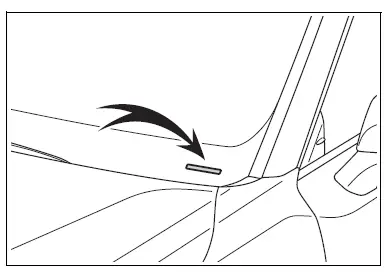
This number is also on the Certification Label.
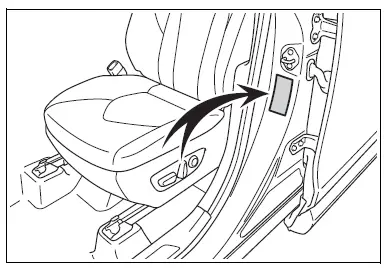
■ Engine number
The engine number is stamped on the engine block as shown.
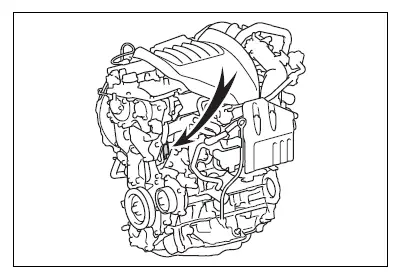
Engine
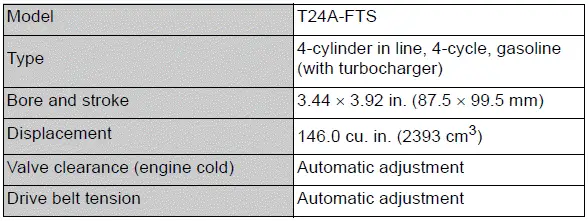
Fuel


Lubrication system
■ Oil capacity (Drain and refill-reference*)
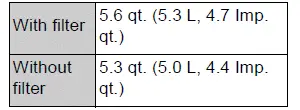
*: The engine oil capacity is a reference quantity to be used when changing the engine oil. When actually adding the engine oil, make sure that the oil level is between the low level mark and refill upper limit mark.
Warm up and turn off the engine, wait about 5 minutes, and check the oil level on the dipstick.
■ Engine oil selection
"Toyota Genuine Motor Oil" is used in your Toyota vehicle. Use Toyota approved "Toyota Genuine Motor Oil" or equivalent to satisfy the following grade and viscosity.
Oil grade: ILSAC GF-6A multigrade engine oil
Recommended viscosity: SAE 0W-20
AE 0W-20 is the best choice for good fuel economy and good starting in cold weather.
If SAE 0W-20 is not available, SAE 5W-20 oil may be used.
However, it must be replaced with SAE 0W-20 at the next oil change.
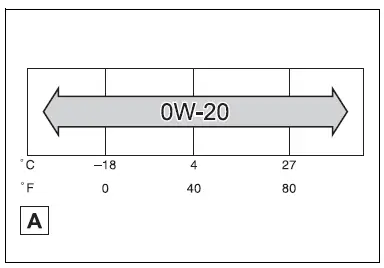
- Outside temperature
Oil viscosity (0W-20 is explained here as an example):
- The 0W in 0W-20 indicates
the characteristic of the oil
which allows cold startability.
Oils with a lower value before the W allow for easier starting of the engine in cold weather.
- The 20 in 0W-20 indicates the
viscosity characteristic of the
oil when the oil is at high temperature.
An oil with a higher viscosity (one with a higher value) may be better suited if the vehicle is operated at high speeds, or under extreme load conditions.
How to read oil container label:
The International Lubricant Specification Advisory Committee (ILSAC) Certification Mark is added to some oil containers to help you select the oil you should use.
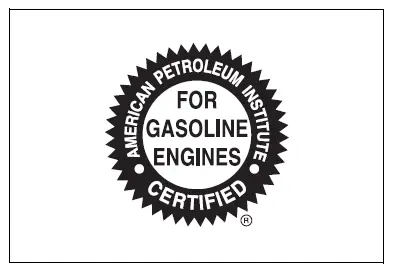
Cooling system
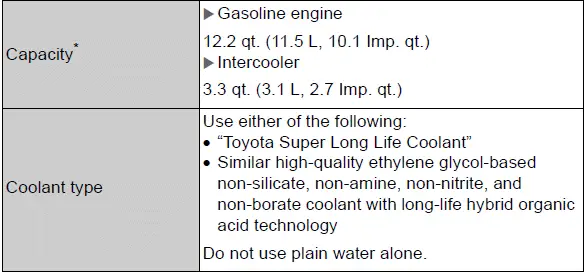
*: The coolant capacity is a reference quantity.
If replacement is necessary, contact your Toyota dealer.
Ignition system (spark plug)

NOTICE
■Iridium-tipped spark plugs
Use only iridium-tipped spark plugs. Do not adjust the spark plug gap.
Electrical system (battery)

Transmission

*: The fluid capacity is a reference quantity.
If replacement is necessary, contact your Toyota dealer.
NOTICE
■Transmission fluid type
Using transmission fluid other than the above type may cause abnormal noise or vibration, or damage the transmission of your vehicle.
Transfer (AWD models)

*: The fluid capacity is a reference quantity.
If replacement is necessary, contact your Toyota dealer.
NOTICE
■Transfer oil type precaution
Using transfer oil other than the specified oil may cause abnormal noise or vibration, or damage the transfer of your vehicle.
Rear differential (AWD models)

*: The oil capacity is a reference quantity.
If replacement is necessary, contact your Toyota dealer.
NOTICE
■Differential gear oil type precaution
Using differential gear oil other than the specified oil may cause abnormal noise or vibration, or damage the differential gear of your vehicle.
Brakes
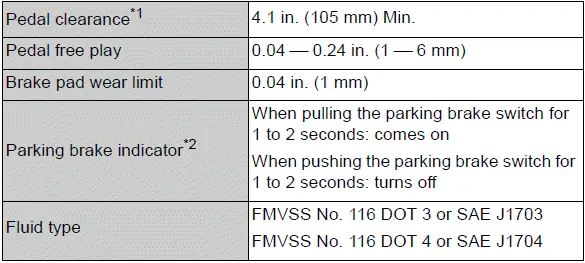
*1:Minimum pedal clearance when depressed with a force of 67.5 lbf (300 N, 30.6 kgf) while the engine is running.
*2:Make sure to confirm that the brake warning light (yellow) does not illuminate.
Steering

Tires and wheels
Type A
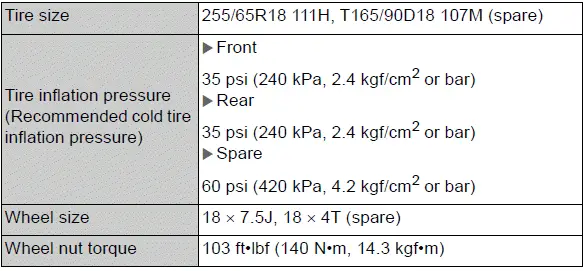
Type B
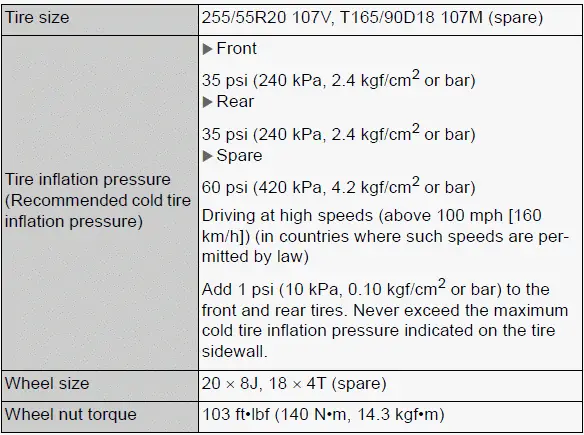
Light bulbs

A: Wedge base bulbs (amber)
Similar pages:
Trailer towing tips
Your vehicle will handle differently
when towing a trailer. Help
to avoid an accident, death or
serious injury, keep the following
in mind when towing:
Speed limits for towing a
trailer vary by state or province.
Do not exceed the
posted towing speed limit.
Toyota recommends that the
vehicle- ...
Toyota Safety Sense 3.0 software
update
It is necessary to enter a
connected services contract,
provided by Toyota, to
use these functions. For
details, contact your Toyota
dealer.
WARNING
■For safe use
When the Toyota Safety Sense
3.0 software is updated, the operating
methods of functions may
change. Using this system without
knowing ...


